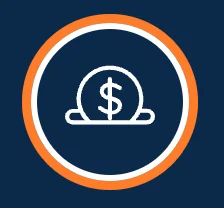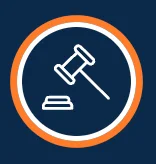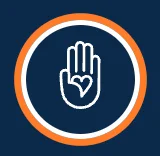Staff shortages in nursing homes have far-reaching consequences, often resulting in a dangerous environment where neglect and abuse can thrive. When nursing homes are understaffed, the quality of care diminishes, leaving residents vulnerable and at risk. At Jordan Law Center, we understand the profound impact of staff shortages in nursing homes on your loved ones. Recognizing and addressing the signs of neglect and abuse is crucial for ensuring the safety and well-being of nursing home residents.
How Staffing Issues in Nursing Homes Lead to Increased Neglect and Abuse
Caregivers are often overworked and stretched thin in nursing homes with staffing shortages.
This situation leads to several critical issues:
- Caregivers may not have enough time to give each resident the necessary attention, resulting in missed medical needs and primary care routines.
- Residents may have to wait longer for assistance with daily activities, increasing the risk of accidents and health complications.
- Overworked staff can experience burnout, reducing their ability to offer compassionate, patient-centered care.
Decline in quality of care
When nursing homes are understaffed, the overall quality of care can deteriorate rapidly.
Inconsistent or inadequate medical attention can worsen health conditions and untreated illnesses. Residents may suffer from poor hygiene and living conditions, leading to infections and other health issues. Inadequate staffing can result in residents not receiving proper nutrition, leading to weight loss and malnutrition.
Increased risk of abuse
Staffing shortages can also create an environment where abuse is more likely to occur. Factors contributing to this include:
- Unsupervised interactions: With fewer staff members available, there is less oversight, increasing the likelihood of abusive behavior going unnoticed.
- Stress and frustration: Overworked caregivers may become frustrated, potentially leading to abusive actions towards residents.
- Lack of training: Understaffed facilities may hire untrained or underqualified caregivers, increasing the risk of improper and harmful care practices.
Understanding the impact of staff shortages in nursing homes and how it leads to increased neglect and abuse is essential for advocating for better care standards in nursing homes. By recognizing these risks, families can take proactive steps to protect their loved ones and seek justice if neglect or abuse occurs.
Common Signs of Neglect Due to Staffing Issues
While honest mistakes do happen and other factors may contribute to concerning changes in your loved one, they can also be signs of abuse or neglect. Some of the most common indicators may include:
1. Unexplained weight loss
One of the most noticeable signs of neglect in nursing homes is unexplained weight loss. This can occur when residents are not receiving adequate nutrition due to insufficient staffing.
Overworked caregivers may fail to ensure residents receive their meals on time, and a lack of staff can also result in inadequate monitoring of residents’ dietary needs and restrictions.
2. Poor personal hygiene
Neglect often manifests as poor personal hygiene among elderly residents. Residents may not be bathed regularly, leading to body odor and skin issues. Insufficient staff may mean caregivers don’t have the time to assist residents with changing into clean clothes. Not enough grooming assistance can result in uncombed hair and untrimmed nails.
3. Untreated medical issues
Staff shortages can lead to untreated medical issues, which may pose severe health risks.
Residents may not receive their prescribed medications on time or at all. Minor injuries can escalate into severe conditions if left untreated, and chronic conditions may worsen without proper medical supervision and care.
4. Emotional withdrawal or depression
A common sign of neglect is emotional withdrawal or depression. This may result from a lack of social interaction where residents may feel isolated due to minimal social engagement and interaction. Overworked caregivers may not have the time to provide emotional support and companionship. Symptoms such as sadness, withdrawal from activities, and changes in sleep patterns can indicate neglect.
5. Pressure sores or bedsores
Pressure ulcers, also known as bedsores, are often a critical indicator of neglect in nursing homes. Residents who are bedridden or immobile need regular repositioning to prevent sores, which may not happen due to staffing issues. Overworked caregivers may fail to provide necessary skin care, leading to the development of bedsores. Look for red, swollen or open wounds, particularly on bony areas of the body.
Recognizing these common signs of neglect due to staffing issues can help families identify when their loved ones may be at risk and take the necessary steps to ensure their safety and well-being.
Legal Help for Nursing Home Abuse in Greenville, SC
Nursing home abuse and neglect cases can be complex. At Jordan Law Center, our attorneys have experience handling these cases and advocating for residents’ rights. We conduct thorough investigations to gather evidence, collaborate with medical experts to assess the extent of the abuse, and develop tailored legal strategies for each case.
Protecting your loved one’s rights
Seeking legal help ensures your loved one’s rights are protected and justice is served. We assist in filing claims against responsible parties and work to ensure those responsible for abuse are held accountable. We strive to secure compensation for damages, including medical expenses and pain and suffering.
Legal Rights of Nursing Home Residents in South Carolina
Nursing home residents in South Carolina are entitled to safe and adequate care, which includes timely and appropriate medical attention, nutritious meals that meet dietary needs, and a clean and secure living environment to prevent infections and other health issues.
All residents have the right to privacy, which encompasses keeping personal and medical information confidential. It includes having access to private spaces for personal time and conversations and making personal choices regarding their daily routines, activities and visitors.
Residents can also file complaints about their care without fearing retaliation. They can report abuse or neglect to state regulatory authorities or the nursing home administration. South Carolina law protects residents from retaliation for filing complaints or participating in investigations. Additionally, organizations and legal advocates are available to assist residents in filing complaints and upholding their rights.
Jordan Law Center is here to help navigate these legal complexities and ensure the safety and well-being of nursing home residents.
Steps to Take if You Suspect Nursing Home Abuse
- Start by keeping detailed records of any signs of abuse or neglect, noting dates, times and descriptions. Photographs of injuries or poor conditions can also be helpful.
- Share your documented evidence with the nursing home management. Clearly explain your concerns and request an investigation.
- If management fails to act or if the situation is severe, contact local regulatory authorities like the South Carolina Department of Health and Environmental Control (DHEC) to file a complaint.
- Seek advice from a nursing home abuse lawyer to understand your legal options and ensure your loved one’s rights are protected. At Jordan Law Center, our attorneys are here to help you navigate these difficult situations and seek justice for your loved ones.
The Role of a Nursing Home Abuse Lawyer
A nursing home abuse lawyer plays a crucial role in advocating for abuse victims. They provide invaluable assistance by investigating claims, gathering evidence, and representing the victim in legal proceedings. These attorneys are dedicated to holding negligent parties accountable and ensuring victims receive the compensation they deserve.
How a lawyer can help you navigate a nursing home abuse case
A nursing home abuse lawyer provides expert advice and guidance, helping you understand your legal options and the best course of action for your situation. They can help by:
- Assisting in gathering evidence and documentation to build a strong case. This includes medical records, witness statements, photographs of injuries and communication records with the nursing home staff.
- Representing you in court or negotiations, advocating for your loved one’s rights and seeking justice on their behalf.
- Ensuring your legal rights are upheld and providing support and representation to achieve a fair outcome.
Evidence and documentation
Collecting evidence and documentation is crucial in a nursing home abuse case. Important evidence includes medical records documenting injuries or neglect, witness statements from other residents or staff, photographs of any injuries or poor conditions and records of communication with the nursing home staff regarding your concerns. This evidence is vital in building a solid case, that shows the serious impact of staff shortages in nursing homes and the neglect and abuse that results.
Contact a Nursing Home Abuse Lawyer
The impact of staff shortages in nursing homes can lead to a significant risk of neglect and abuse. By understanding the signs of neglect and taking appropriate action, you can help protect your loved one and ensure they receive the care they deserve. If you suspect that your loved one is a victim of nursing home abuse due to staff shortages, contact a nursing home abuse lawyer like those at Jordan Law Center.







“There is not enough GREAT THINGS I could say about Jordan Law Center.”